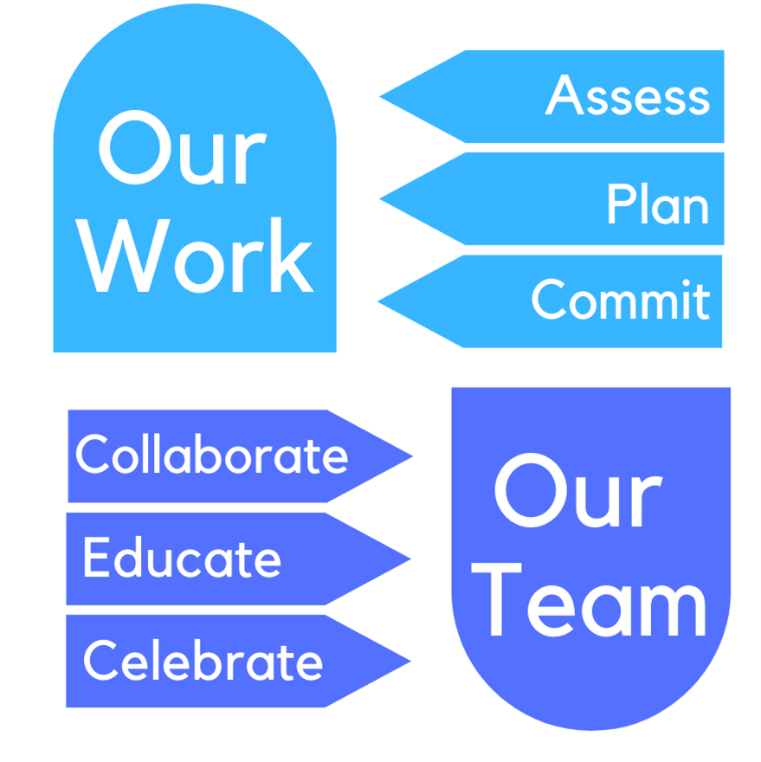EDI
Equality, Diversity and Inclusion (EDI)
Research needs to be designed so that it is truly inclusive, to ensure the outcomes benefit everyone.
Research needs to be undertaken by a diverse and inclusive community where participants who take part reflect everyone who is affected by cancer. We know that diverse teams working with diverse participants will result in research that impacts the greatest number of people in our society.
We are committed to embedding Equality, Diversity, and Inclusion (EDI) across our research and workplace culture.
In collaboration with the wider Cancer Prevention Group, the Cancer Prevention Trials Unit has developed an EDI strategy to meet the following aims:
- Improve the inclusivity of our trials
- Develop a diverse and inclusive research community
- Connect with participants and the public in an inclusive way
- Ensure the findings of our research are applicable to the whole population
Our EDI Strategy
We have developed a strategy to ensure we deliver on our commitment to EDI, while undertaking our research in advancing earlier diagnosis and prevention of cancer.
Our strategy is made up of both outward- and inward-facing components. These address the impact of our work and the environment we create for our colleagues and collaborators.

OUR WORK
We conduct research evaluating current approaches to screening, investigating potential new early detection technologies, and trialling interventions to reduce the risk of cancer. In all of our trials, we strive to be as inclusive as possible to avoid worsening existing health inequalities. Below we share a few case studies of strategies implemented in our work:
NHS-Galleri Trial Sampling Strategy Evaluation
The EDI strategy for our work is focused in these areas:
ASSESS
We conducted an in-depth quantitative and qualitative review of EDI practices in each of our projects.
We then used these results to inform the rest of our strategy.
PLAN
We are developing our first CPG EDI Policy with the EDI Task & Finish Group and senior team leaders, with input from our whole team.
We are standardising the way we collect demographic data across our projects to facilitate accurate reporting, and to lead on best practice in this area.
COMMIT
We have embedded EDI principles in our Patient and Public Involvement (PPI) policy.
We have implemented an EDI and PPI assessment for all future projects, to ensure we cost for and implement inclusive strategies from the outset.
We are reviewing and
amending all our standard operating procedures from an EDI perspective.
OUR TEAM
Our EDI journey began with better understanding our team. We have formed an EDI Task & Finish Group where the voices of colleagues, particularly those in minority groups, are platformed. The EDI Task & Finish Group has developed these key strategies for our team:
COLLABORATE
The EDI principles embedded in our PPI policy reflect a collaborative approach, where diverse PPI perspectives shape the strategy of our group.
We have adapted our workforce recruitment to include EDI questions at interview stage. This shows candidates that EDI principles are at the core of our values as a group and sets the bar for an inclusive and equitable attitude in the workplace.
EDUCATE
We commissioned bespoke training which focused on concepts of equality, equity, and justice in scientific research. These materials are available for all colleagues.
We have a growing internal library of resources for use by all colleagues wishing to learn more about inclusivity in the workplace, in research and in cancer prevention and diagnosis.
We have created and implemented EDI-focused exit interviews so we can learn from the experiences of people leaving our team and improve in future.
CELEBRATE
We have redesigned our staff induction pack with a focus on inclusivity and reducing unconscious bias to ensure all new staff can succeed in their roles.
We have strongly encouraged including an EDI objective as standard to performance development reviews.
We are pioneering the roll-out of reasonable adjustment passports to ensure colleagues with disabilities do not have to re-explain or re-negotiate adjustments.
We are developing case studies on our best-practice wins, with a view to providing examples of how inclusivity can look in practice, and to generate discussion of what more can be done going forward.
We are highlighting the voices of our staff members from diverse backgrounds in our blog.
OUR EDI BLOGS
Can prediction models reduce racial/ethnic disparities in lung screening eligibility criteria?
How do we transform cervical cancer screening for the transgender population?
Pride in Research: The legacy of erasure and the future of LGBT+ inclusive trials
EDI Series | Part 1: 5 minutes with..
Sisters are doin’ it for themselves
The colours of a clinical trial – Cancer Prevention and Screening Blog (qmul.ac.uk)
The Legacy of Henrietta Lacks – Cancer Prevention and Screening Blog (qmul.ac.uk)
Resources:
OUTpatients - LGBTIQ+ Cancer Charity
